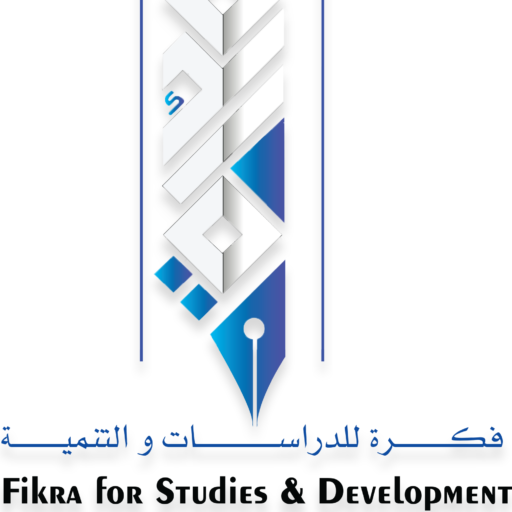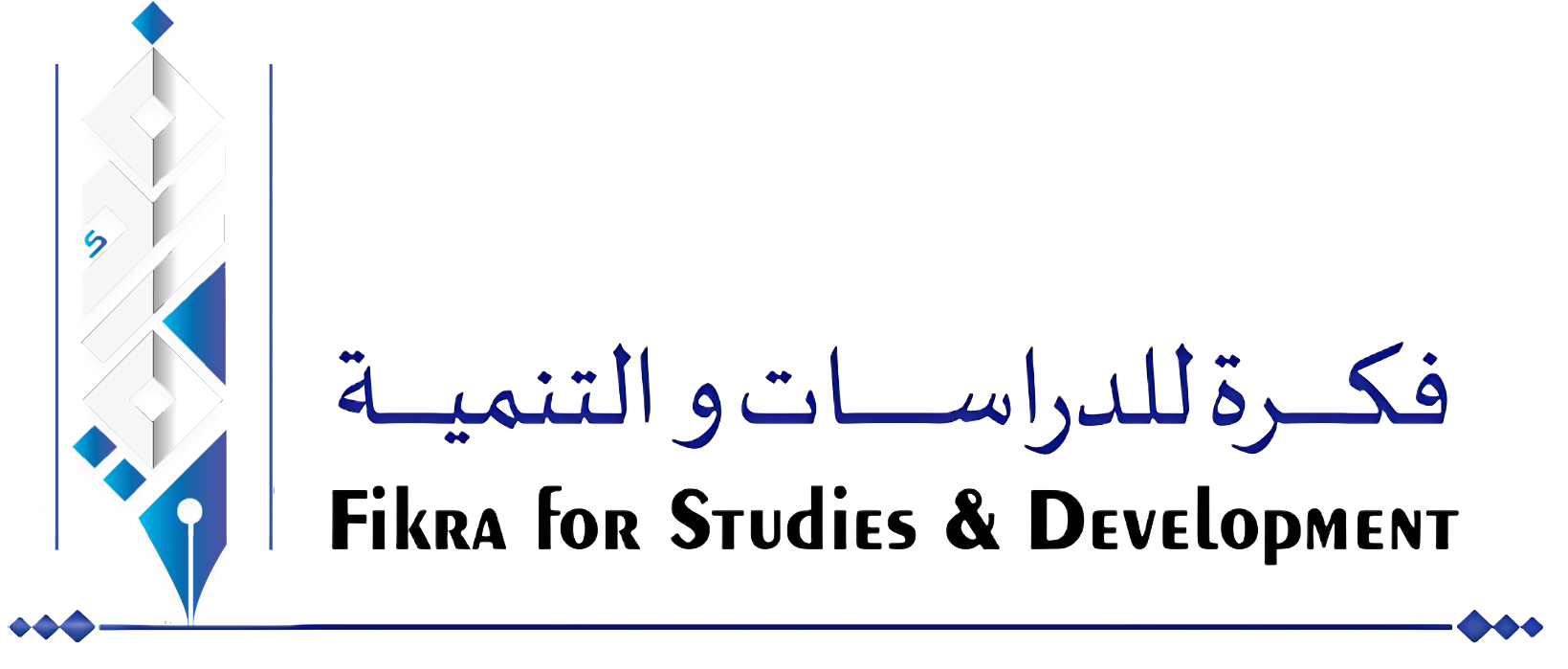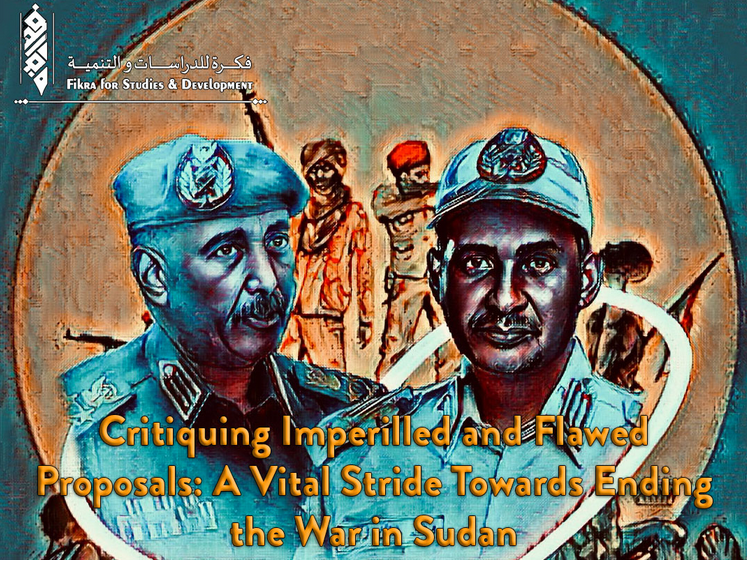Critiquing Imperilled and Flawed Proposals: A Vital Stride Towards Ending the War in Sudan
Amgad Fareid Eltayeb
The Proposal made Taha Osman Ishaq’s on behalf of the Forces of Freedom and Change appears to be the beginning of yet another political maneuver that will only result in the spread of further political confusion amid the ongoing crisis and seeks to score political points at the expense of the ongoing war. It includes the call for conferring upon the “leaders” of the warring parties: the Army and the Rapid Support Forces, permission to engage in political activities after the war while conveniently disregarding the crimes and transgressions that have taken place. With the justification of these crimes being mere symptoms of a disease, which is the ongoing war. The campaign is in fact a political endeavor aimed at safeguarding the entrenched corruption privileges exercised by certain individuals during the transitional period, whose objective was to replace the deposed National Congress Party ideological empowerment with regional empowerment.
Furthermore, it appears that this campaign is being conducted under the guidance of a foreign agenda, that primarily aims at maintaining the political presence of its agents and securing their influence over Sudan’s state apparatus. This is being done in order to further protect foreign countries’ interests in acquiring additional land, ports, and gold deals.
The logic behind this campaign is flawed at its core:
1- The violations that occurred are specifically named “war crimes”. In the context that these acts are considered criminal offenses and are distinct from acts of warfare. These are crimes, not a nature of war, and there is no inevitability for their occurrence with the occurrence of war. This applies all over the world, and to the experiences that Sudan has gone through. Various armed struggle movements engaged in fierce confrontations with the Sudanese armed forces across the south, in the east, in Darfur, in Kordofan, and in the Blue Nile. SAF committed the same violations that we have witnessed it committing since April 15, such as indiscriminate shelling, arrest and detention of civilians, etc., but we did not witness these movements taking shelter in hospitals, looting citizens’ homes, stealing and looting their property, kidnapping and raping women, or mass killing on the basis of identity. Khalil Ibrahim’s movement arrived and stormed Omdurman, and we did not hear of its soldiers committing a single case of rape, or that they looted a citizen’s car or stole his property.It is feasible to comprehend the attempt to justify war while hiding behind the cover of politics; but, it is impossible to comprehend the attempt to excuse war crimes. The war crimes committed by the militia are crimes that reflect the fascist nature of the militia and are not just side effects of war.

Transitional justice is not just a word that is repeated without substance, rather, it includes recognition of crimes, determining who is responsible for them, and apologizing for them in return for evading criminal accountability. However, evasion of political accountability and rewarding the usurpers for their crimes cannot be allowed, because that is what opens the door to the recurrence of the crimes.
2- The current war in Sudan today lacks any historical or political foundations related to the structure of the Sudanese state, as the militia and its allies claim. This is a bad war over the spoils of a military coup. It took place between two partners in a crime who disagreed over the allocation of its spoils later. At that time, one of them, the Rapid Support Forces, showed its true face as a fascist organization that does not hesitate to do anything to realise the aspirations and desires of its owner. Put aside the murder, rape, looting, and mass killing committed by the militia, and examine instead the hate speech, discrimination, and racism discourse exhibited by the militia’s media mouthpieces in videos of mobilization and boasting about the spoils looted to see this fascist face of the RSF. Attempting to create a social and political foundation for this war is wrong and dangerous for many reasons.- First, because this deepens the roots of this war and adds more fuel to its fire. It gives the militia justifications for mobilizing on an ethnic and regional basis, which further destroys the social fabric in Sudan and complicates the already complicated issues of coexistence in the country.
- Secondly, because it is not real. The militia was not founded on the basis of grievances suffered by Sudanese social components. Rather, the Rapid Support Forces militia is a tool of violence and repression created by the ousted regime, with no theoretical or political basis other than practicing and using all tools of violence to achieve its goals, whether that was protecting the regime, as we witnessed it doing in the massacres of September 2013 in Khartoum, and in Darfur, North Kordofan, and other areas until the fall of Bashir’s regime, or serving the self-aspirations of its owner, Mohammad Hamdan Dagalo (Hemedti), as we have seen it doing since the overthrow of the regime in April 2019 until the current war.
- And thirdly, because it deprives citizens and social groups of this base, which the Rapid Support Forces claim to represent, of genuine representation in favor of a private sector militia that works solely for the benefit of its owners, while it drags these groups into wars and conflicts that do not concern them or serve their collective interests in anything.
3- The Sudanese armed forces cannot be reformed by incorporating organizations with political aspirations and orientations into their leadership, as currently proposed for the incorporation of the RSF into the Armed Forces Command. Rather, the purpose of the Military and Security Sector Reform should be to purge the armed forces and its leadership of all politicized cadres. The new and unified Sudanese Armed Forces should be a non-political national body independent of any political influence on its decision-making by the political entities to which commanding officers belong. The path to becoming a member of the armed forces and attaining a position of leadership should involve professional qualifications, performance, and dedication and not through the political empowerment practiced by Islamists and the National Congress Party, nor as a reward for the civil war, as proponents of this call for the Rapid Support Forces incorporation desire. This is an unacceptable political appeasement and intimidation of the country’s future. It is, in fact, blackmailing. Furthermore, by virtue of its ethnic and unprofessional composition, the militia’s leadership and membership are severely lacking in professional and moral qualifications related to military professionalism, the laws of war, and dealing with civilians, as witnessed in this war. In our persistent call for reforming the armed forces and the security sector in Sudan, we sought to elevate these moral and professional obligations as a priority that governs their performance and practice.
The call for such solutions is not without ulterior motives; rather, it opportunistically, seeks to capitalize on the presence and military influence of potential allies within the military decision-making centers, leading to the continuation of the Sudanese vicious satanic cycle of rocky transitions, flawed democracies, military coups, and eventual totalitarian dictatorships that has been repeated at least three times in the modern history of Sudan. All that has happened in this war should finally terminate this vicious cycle and pave the way for peace, stability, and good governance in Sudan. A bloodied shirt is the argument behind the effort to include the RSF in the leadership of the Armed Forces when mixing it intentionally with the Security Sector Reform. To reform the military and security establishments, we need to depoliticize their institutions, not increase their politicization and try to benefit from parts of them.

The political solution to end the war in Sudan and rebuild it is achieved by addressing the reality and the roots that led to the war, not trying to adapt and exploit them to serve personal and political aspirations, and marketing this in the context of political realism. Reality testifies that the existence of the militia as an institution in itself is one of the roots—if not the major—that led to this war. Any solution that does not begin with ending the institutional existence of the Rapid Support Forces militia and then dealing individually with its soldiers as armed citizens, whether through military rehabilitation and integration into the formal institutions, or civilian rehabilitation and demobilization, is nothing but a mere postponement of the outbreak of another armed conflict in Sudan. Reforming the armed forces and the security and military sectors in Sudan is a cornerstone of any solution to stop this war and prevent its recurrence. It is one of the demands of the December Revolution that was stained with the blood of its martyrs. It is a national task, just like reforming the economic and health systems in the country, and it should be done on scientific and professional bases far from political influence and regional and ethnic biases if we are serious about it. This should start with identifying and dismissing the Islamists who are in the decision-making centers within the army instead of just repeating and rephrasing the talk about the Islamists’ control over it. This is a duty that requires effort from the national political forces (to do their homework) instead of the laziness of repeating the mobilization slogans that the militia uses to cloud public opinion.

Finally, it’s important to stress that no matter what the ultimate outcome of efforts to end the war in Sudan may be, it must in no way involve rewarding those who were responsible for starting it and actively contributing to its continuation. Every military leader in the Sudan, both in charge of the army and the Rapid Support Forces, is individually accountable for their respective roles in initiating this war. Since their joint coup on October 25, 2021, until the start of this war on April 15, 2023. Attempting to persuade them by offering the opportunity to resume a normal political career after the conclusion of the war is a gift that the giver lacks ownership of, and the recipient is undeserving of. |
|






